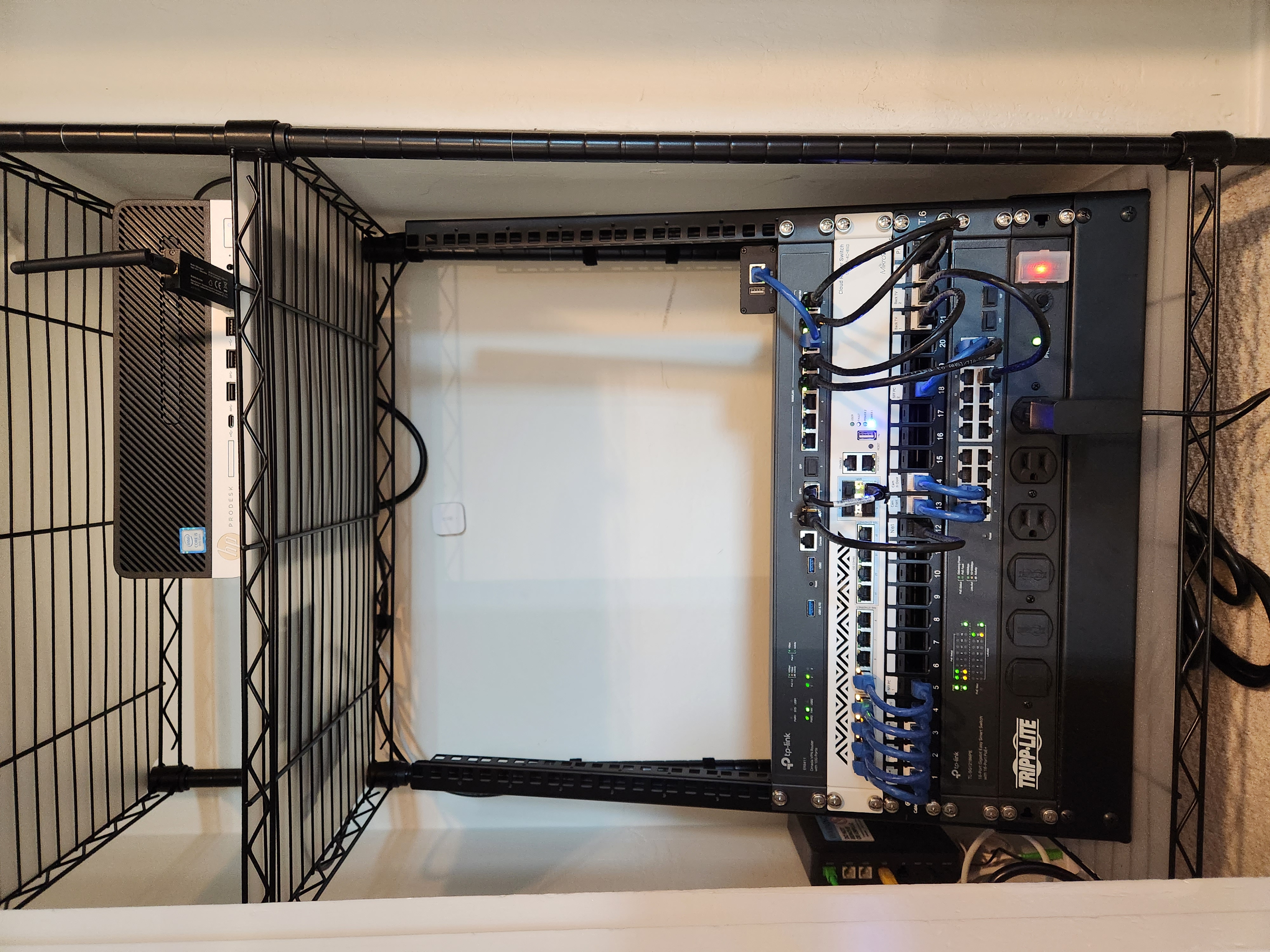I couldn't find a "Home Networking" community, so this seemed like the best place to post :)
My house has this small closet in the hallway and thought it'd make a perfect place to put networking equipment. I got an electrician to install power outlets in it, ran some CAT6 myself (through the wall, down into the crawlspace, to several rooms), and now I finally have a proper networking setup that isn't just cables running across the floor.
The rack is a basic StarTech two-post rack (https://www.amazon.com/gp/product/B001U14MO8/) and the shelving unit is an AmazonBasics one that ended up perfectly fitting the space (https://www.amazon.com/gp/product/B09W2X5Y8F/).
In the rack, from top to bottom (prices in US dollars):
- TP-Link ER8411 10Gbps router. My main complaint about it is that the eight 'RJ45' ports are all Gigabit, and there's only two 10Gbps ports (one SFP+ for WAN, and one SFP+ for LAN). It can definitely reach 10Gbps NAT throughput though. $350
- Wiitek SFP+ to RJ45 module for connecting Sonic's ONT (which only has an RJ45 port), and 10Gtek SFP+ DAC cable to connect router to switch.
- MikroTik CRS312-4C+8XG-RM managed switch (runs RouterOS). 12 x 10Gbps ports. I bought it online from Europe, so it ended up being ~$520 all-in, including shipping.
- Cable Matters 24-port keystone patch panel.
- TP-Link TL-SG1218MPE 16-port Gigabit PoE switch. 250 W PoE power budget. Used for security cameras - three cameras installed so far.
- Tripp Lite 14 outlet PDU.
Other stuff:
- AdTran 622v ONT provided by my internet provider (Sonic), mounted to the wall.
- HP ProDesk 600 G5 SFF PC with Core i5-9500. Using it for a home server running Home Assistant, Blue Iris, Node-RED, Zigbee2MQTT, and a few other things. Bought it off eBay for $200.
- Sonoff Zigbee dongle plugged in to the front USB port
- (next to the PC) Raspberry Pi 4B with SATA SSD plugged in to it. Not doing anything at the moment, as I migrated everything to the PC.
- (not pictured) Wireless access point is just a basic Netgear one I bought from Costco a few years ago. It's sitting on the top shelf. I'm going to replace it with a TP-Link Omada ceiling-mounted one once their wifi 7 access points have been released.
Speed test: https://www.speedtest.net/my-result/d/3740ce8b-bba5-486f-9aad-beb187bd1cdc
Edit: Sorry, I don't know why the image is rotated :/ The file looks fine on my computer.

This guy did exactly that: https://sschueller.github.io/posts/wiring-a-home-with-fiber/
His conclusion is you might need to buy your own fusion splicer so you'll have more flexibility when laying down your cables (no more too long or too short cables, and ability to run the cables through tight spots where pre-terminated cables can't fit). He also used singlemode so he can upgrade the speed later down the line without replacing the cables.
Definitely not cheap (due to buying his own splicer) but at least future proof.